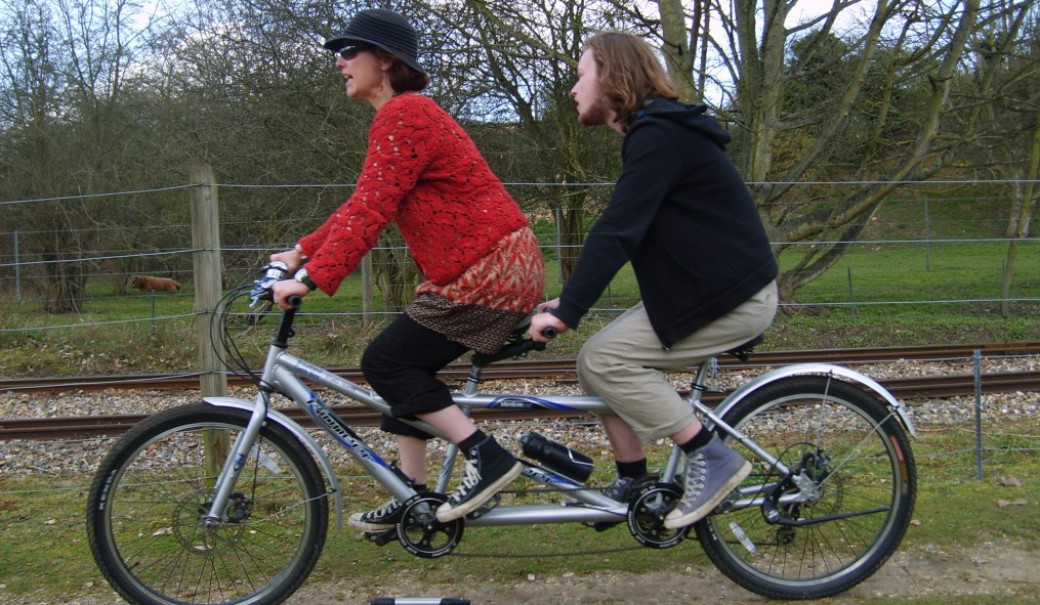A. Ethical Issues for Me
 In Living with Autism I give voice to my own preoccupations, as caregiver, as well as reflecting on the life world of my son. This focus on the parent-child dyad means the blog has two subjects and two authors: Dylan’s contribution to the narrative is visual and embodied whereas mine is verbal. In this way I consider Dylan and myself to be joint subjects and co-authors of this blog.
In Living with Autism I give voice to my own preoccupations, as caregiver, as well as reflecting on the life world of my son. This focus on the parent-child dyad means the blog has two subjects and two authors: Dylan’s contribution to the narrative is visual and embodied whereas mine is verbal. In this way I consider Dylan and myself to be joint subjects and co-authors of this blog.
As Dylan is unable to participate fully in this process, however, and cannot give ‘informed consent’, Living with Autism raises ethical issues. My position may change but at the time of writing my view is that the benefits of keeping the blog outweigh the risks. Although ethical issues are not the main focus of the article, I explore some of the dilemmas here:
The article acknowledges that parental narratives may be ‘open to charges of oppression’ but argues that:
The inclusion of non-verbal informants in research studies is…dependent upon such facilitation; as Booth and Booth note, ‘lives are available to us only in words’ (1996:66). If we are to include the perspectives of those with intellectual disabilities, we must therefore accept the voice of an interlocutor; the alternative is for those who do not use speech to be absent from research accounts.’ (p. 5)
Although some interesting work is being done in relation to participatory methods which use alternative formats (such as youtube video), for adults with an intellectual disability these approaches may be as inaccessible as traditional narrative methods. Certainly the critical factor for Dylan, in relation to decision-making and participation, is the fact that he ‘lacks capacity’ rather than his absence of speech or autism diagnosis. Over and over I am struck by how excluded adults with intellectual disability are from our accounts of society; in this post, for example, I reflect on the disenfranchisement of the learning disabled from political processes. In this context, I would argue, acts of advocacy by caregivers are essential to the representation of the interests of adults with intellectual disability. This blog is part of that process.
B. The Ethical Framework
 1. Beneficence (benefits)
1. Beneficence (benefits)
- Dylan will benefit from the way the blog encourages me to scrutinise my practice and reflect on my relationship with him.
- I will benefit from this process of review which encourages me to reflect on my own life and needs as well as on my role as carer.
- Dylan will benefit from the knowledge and skills I develop through my contact with autistic people and carers of autistic people.
- I will benefit from the expertise and support of others.
- Dylan will benefit from the process of advocacy which this blog represents.
- Visitors to the blog (with and without autism and/or caring responsibilities) will benefit from the process of sharing and reflection.
- Dylan will benefit from those involved in his care being able to develop a broader knowledge and understanding of his life.
2. Non-Malfeasance (do no harm)
- I will not share material which I think could harm Dylan or make him vulnerable.
- I will edit or remove any material which I feel is harming Dylan or myself.
- I will anonymise and protect the identity of professional settings and the individuals who work with Dylan.
- I will not refer to the other residents at Dylan’s residential home in my posts other than in general terms and in relation to Dylan’s life.
- I will not write about other autistic people with whom Dylan has contact (e.g. personal friends) without consent.
3. Informed Consent
Dylan does not have the intellectual capacity to give informed consent in the way which we would normally require. While Dylan was living at home with me I would talk to him about the posts I made and, where appropriate, let him select some of the visual images to accompany the post. However, he could not give consent to the verbal text. The posts made after Dylan moved to residential care tend to focus on my experience of ‘separation’ and do not raise the same ethical challenges in relation to consent. Where individuals are identified in posts (e.g. family friends), consent is given.
4. Anonymity/confidentiality
It is not possible to make myself anonymous due to my professional identity and profile as a writer. It does not feel plausible or possible for me to give my son a pseudonym or a contraction (such as ‘D’) as my son’s name already appears in other texts (for example in my poetry). I have, however, anonymised some details through omission or re-naming and I have protected the identity of other members of my family and our friends as well as professional settings and individual professionals. I have anonymised ‘walk-on’ parts in these narratives by identifying people by their roles only.
B. Ethical Issues for You
 I will moderate comments with the same ethical standards that I apply to my own blog posts. I will not approve any comments which I judge to be offensive to groups or individuals, or which I think are intentionally inflammatory or designed to hurt people. When commenting on posts please bear in mind that people viewing this site may be autistic themselves or care for someone who is autistic, and that they could be located anywhere in the world. Please celebrate and respect these cultural and neurological differences.
I will moderate comments with the same ethical standards that I apply to my own blog posts. I will not approve any comments which I judge to be offensive to groups or individuals, or which I think are intentionally inflammatory or designed to hurt people. When commenting on posts please bear in mind that people viewing this site may be autistic themselves or care for someone who is autistic, and that they could be located anywhere in the world. Please celebrate and respect these cultural and neurological differences.
Visitors to this site are very welcome to take and adapt any of the ideas or approaches described in my blog posts or articles; one of my purposes in setting up the blog is to share and disseminate knowledge, information and ideas so I would be very happy if people found something on the site which they wanted to build into their own practice. However, please note that the writing is my original work and any use of my poetry or prose should be acknowledged. The poems on this site have all been published previously and can be reproduced with appropriate acknowledgement of my books (see ‘Poems’ page on this site for details). The blog posts and articles can be quoted from if you wish, but please acknowledge the source. Thank you.
Most of the images used on this blog are from my personal collection and were taken by me or by my children or Dylan’s care workers. I have been careful not to use photographs of Dylan which include images of other autistic children or adults (unless I have appropriate permissions). Other images are sourced from the internet and to the best of my knowledge are copyright free. I have attempted to use sources responsibly and ethically at all times. Where the source of an image is unclear or unknown I have acknowledged this and noted my appreciation. Any errors will be corrected promptly.
The statement on this page is likely to be revised and to develop in order to reflect the dynamic nature of ethical practice described here so please check back from time to time.
This statement was first posted on 1st September 2013
Updated w/b 18th October 2013
Updated 1st November 2013
Updated 21st December 2013
Reviewed 15th April 2014
Updated 4th June 2014
Reviewed August 2014
Updated 19th March 2015
Updated 13th September 2015
Reviewed 6th March 2016
Reviewed 9th September 2016
Updated 7th October 2017
Updated 3rd-7th December 2017
Reviewed 10th June 2018
Reviewed 21st February 2020
Updated 3rd April 2023


Pingback: Perspectives: Blogging About Autism — Blog — WordPress.com
Pingback: Learning to Blog – Student, Teacher | Love, Support, Educate, Advocate, Accept...
Hi there – yes I agree that pseudonyms are a good choice, especially with children and/or where consent is an issue. It is very challenging for me. I think that I probably would have blogged with pseudonyms if I hadn’t already got a profile as a published writer, particularly as my blog draws on some of that published work. I am considering setting up another anonymous blog and will be interested to see whether (if I do) that changes the way I think about and approach this one.
LikeLike
Pingback: Learning By Writing: reflections on blogging (i) | Living with Autism
Pingback: Day 71: Living In The Brackets | Living with(out) Autism